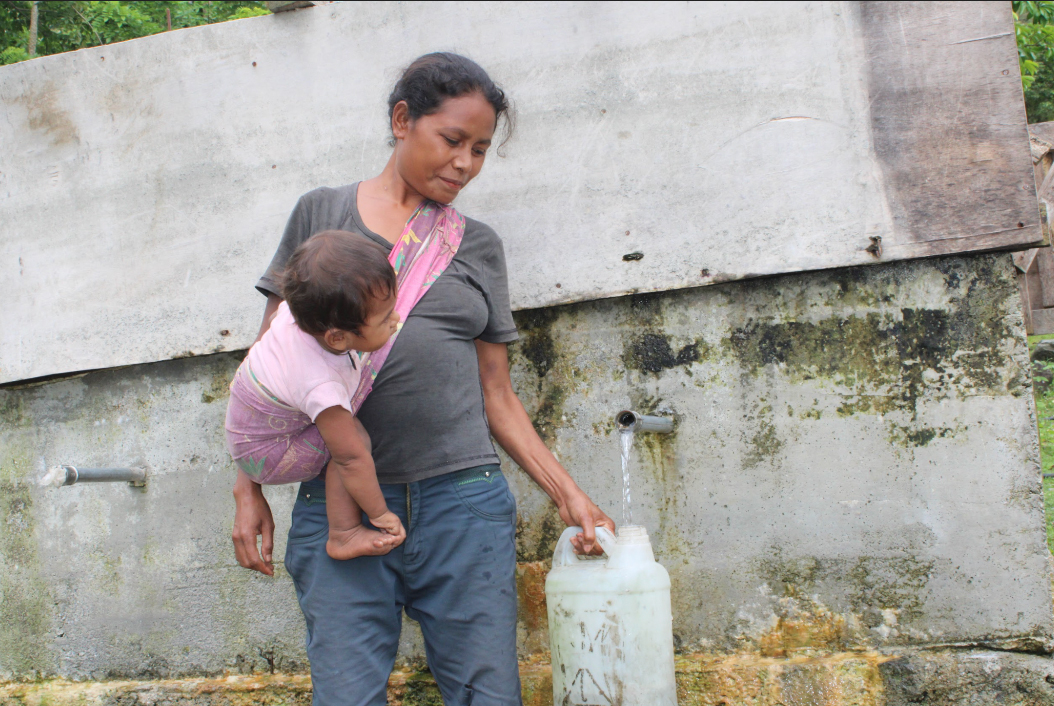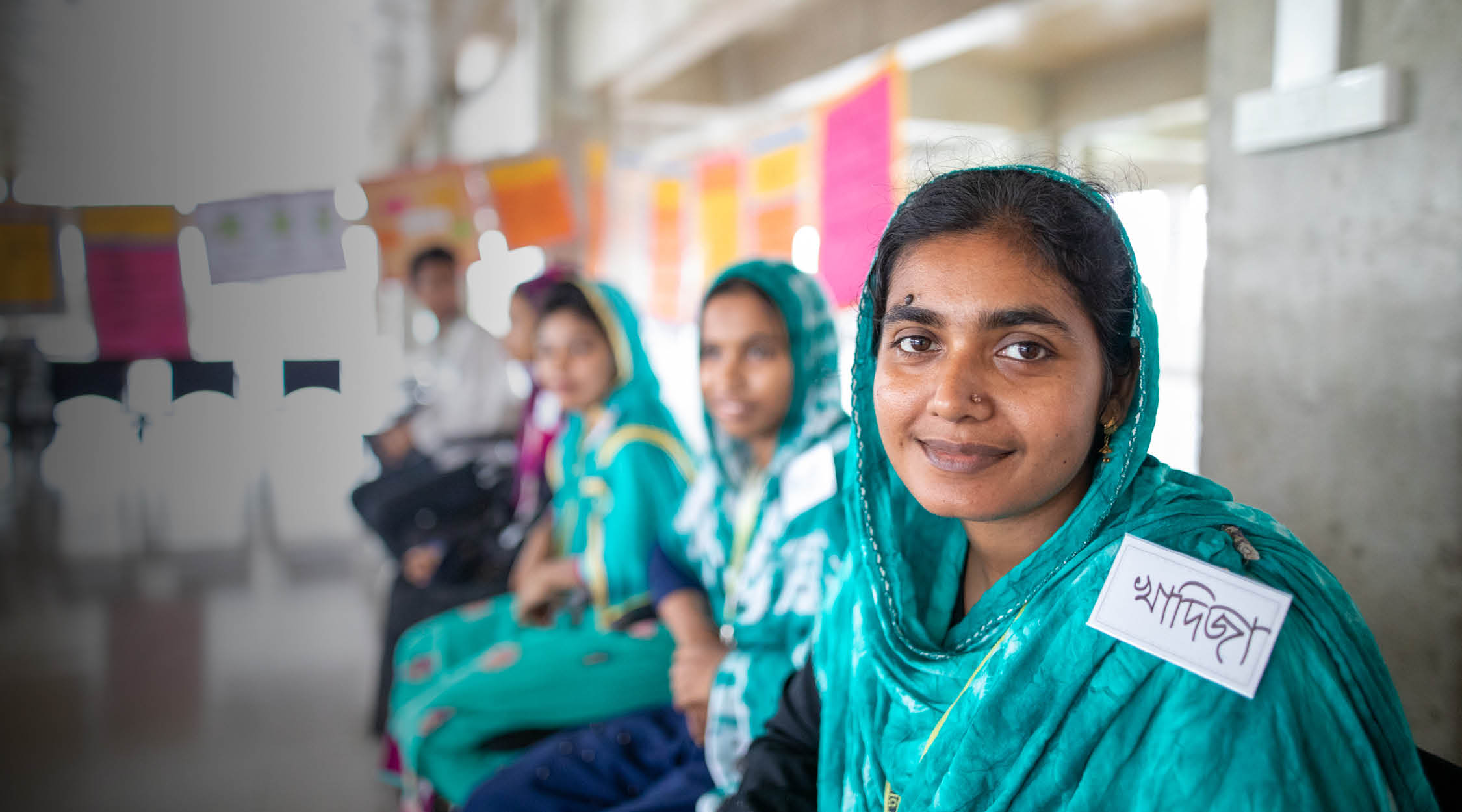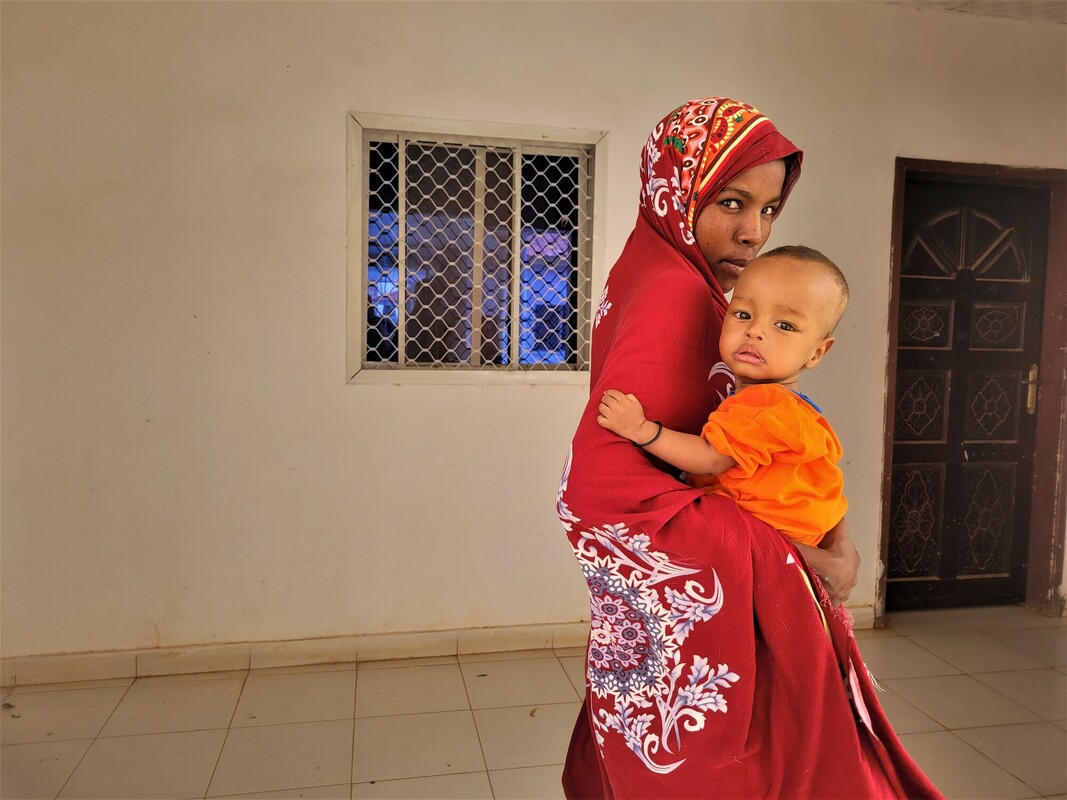
Living without clean water is a frightening prospect.
Drinking dirty water is a quick way to get sick. And waterborne diseases spread quickly when there’s no clean water to wash in — it makes prioritising hygiene very difficult. On top of that, spending hours every day walking to a safe water supply robs people of their time to learn at school or earn a living, and simply stands in the way of the things they’d like to be doing with their day. Unsurprisingly, it is women and girls to whom this burden usually falls.
For 450 years, that was the way of life in Deliana’s village in Timor-Leste, where there was no clean water and gathering it from the nearest river took hours every day.
That changed in 2021 thanks to a project implemented by CARE Australia with the support of our donors, including the Australian Humanitarian Partnership’s Disaster READY program.
Now, clean water is available on tap.
At 22 years old, Deliana had already spent too much of her life collecting water.
“I would feel tired every day,” Deliana said. “I would have to collect water four times a day, using eight five-litre jerry cans.
“I always felt the lack of clean water in my house … Sometimes my family would ignore good hygiene practices because there wasn’t enough water.”
The spread of COVID-19 made the lack of clean water even more dangerous for Deliana’s family and the whole community, who were already concerned about the risks of tuberculosis, malaria and dengue fever. To help battle this problem, CARE partnered with local organisations to construct a water tank in the heart of the community. This will ensure they have a permanent, protected source of clean water. And even better, the water is piped to taps at the community centre, making it more accessible for Deliana and her neighbours.
“Now I can access clean water easily!”
Deliana is now in control of how she spends her days, and no longer needs to worry about her family’s health. “My family has been consuming clean water since August 2021, and I can feed my children with clean food as well.”
Thanks to the support of our donors in Australia and our partners in Timor-Leste, Deliana and her entire community have clean water, the freedom to choose how they spend their days, and bright futures ahead of them.
Read more about how supporting women to defeat poverty creates lasting change in communities.

